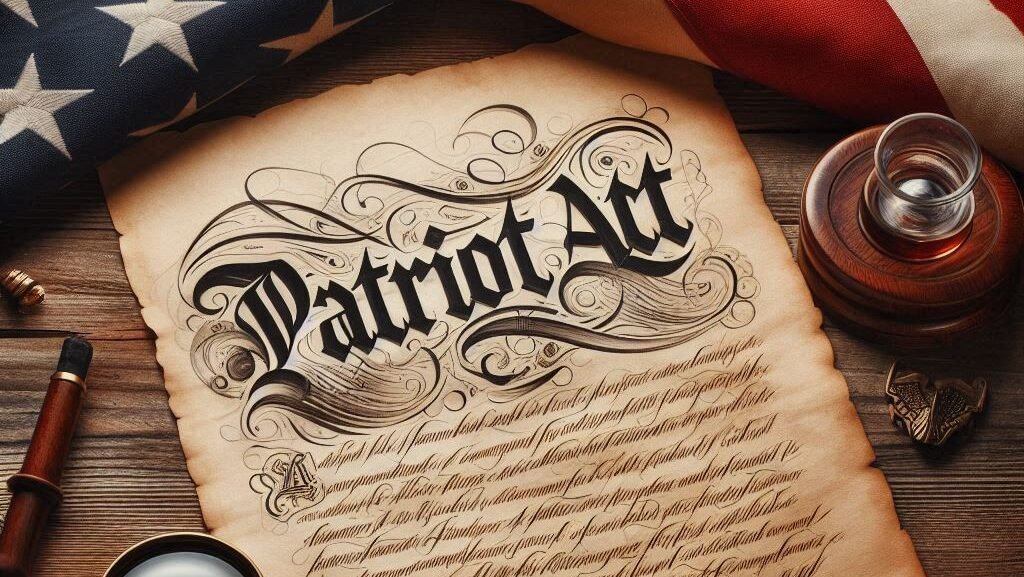The Patriot Act—short for the Uniting and Strengthening America by Providing Appropriate Tools Required to Intercept and Obstruct Terrorism Act—is a U.S. law enacted in response to the September 11, 2001, terrorist attacks. Signed into law by President George W. Bush on October 26, 2001, the act significantly expanded the government’s surveillance and investigative powers to prevent and respond to terrorism. Here are the main features and implications of the Patriot Act:
1. Enhanced Surveillance Powers
- The Patriot Act granted the government more authority to conduct surveillance on individuals suspected of terrorist activities. This included:
- Wiretapping and Electronic Surveillance: Expanded the ability to conduct roving wiretaps, allowing the government to track a single suspect across multiple communication devices without needing a separate warrant for each device.
- Access to Records: Section 215 of the Patriot Act allowed the FBI to request records and data from businesses, libraries, and financial institutions with a court order if they are deemed relevant to a terrorism investigation.
- Increased Access to Electronic Communications: Allowed government agencies to access emails, phone records, and other digital communications more readily.
2. Information Sharing
- The act encouraged information sharing between federal, state, and local agencies, aiming to close gaps that may have allowed terrorists to evade detection before the 9/11 attacks. This provision facilitated greater coordination between the FBI, CIA, NSA, and other law enforcement and intelligence agencies.
3. Financial Counter-Terrorism Measures
- Title III of the Patriot Act focused on combating money laundering and financing of terrorist groups. It required financial institutions to verify the identities of account holders, report suspicious activities, and monitor transactions that could be linked to terrorism.
4. Expanded Definition of Terrorism
- The act broadened the definition of terrorism to include domestic terrorism, not just international terrorism. This allowed the government to prosecute individuals and groups that engage in acts of violence aimed at intimidating or coercing civilians or influencing government policy within the United States.
5. Detention and Deportation
- The Patriot Act provided greater leeway to detain and deport foreign nationals suspected of terrorism-related activities. It also allowed the government to detain suspected terrorists without charges under certain circumstances, leading to criticism over potential civil rights violations.
6. “Sneak and Peek” Warrants
- The act introduced delayed-notification search warrants, or “sneak and peek” warrants, which allowed law enforcement to search a suspect’s property without immediately notifying them. This provision was intended to prevent suspects from fleeing, destroying evidence, or compromising investigations.
Criticisms and Concerns
The Patriot Act has faced criticism for its perceived overreach and impact on privacy and civil liberties. Civil rights advocates, privacy groups, and others argue that the act:
- Infringes on the right to privacy by allowing for increased government surveillance.
- Enables government overreach through the broad interpretation of “relevance” in investigations.
- Risks racial and religious profiling, especially in communities perceived to be associated with terrorism.
- Violates due process by allowing indefinite detention of individuals without charges.
Amendments and the USA Freedom Act
Some sections of the Patriot Act were allowed to expire or were modified over time, particularly following public concerns about mass surveillance. In 2015, the USA Freedom Act was passed, which reformed and reined in some of the Patriot Act’s surveillance provisions, most notably:
- Ending the bulk collection of phone metadata by the NSA, instead requiring phone companies to retain data and allowing the government to access it only with specific warrants.
Legacy
The Patriot Act marked a significant shift in U.S. policy toward national security and surveillance. It remains controversial, as it exemplifies the balance between national security interests and the protection of individual freedoms and privacy. Although some provisions have been rolled back, many aspects of the Patriot Act continue to influence U.S. counter-terrorism and law enforcement practices.
